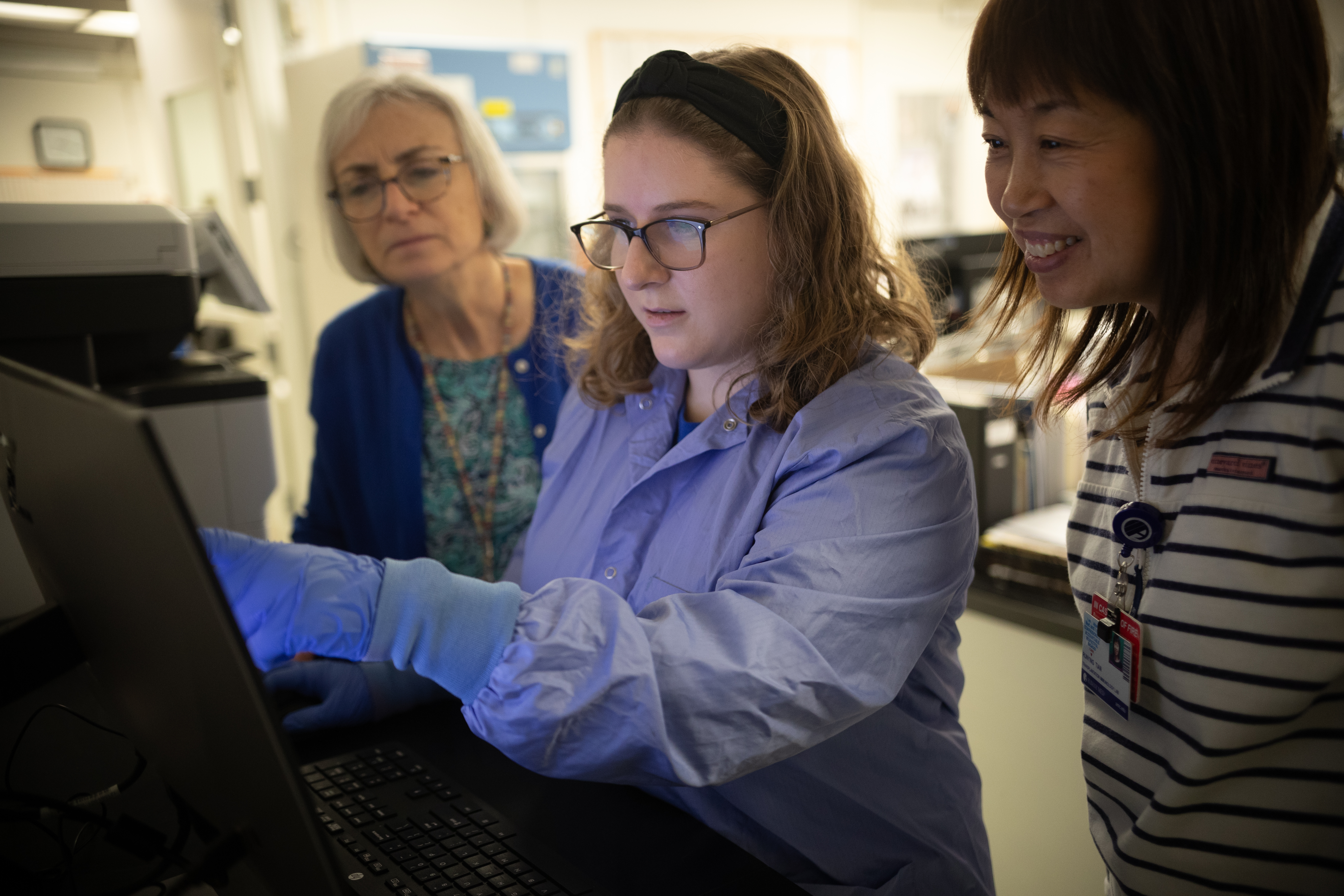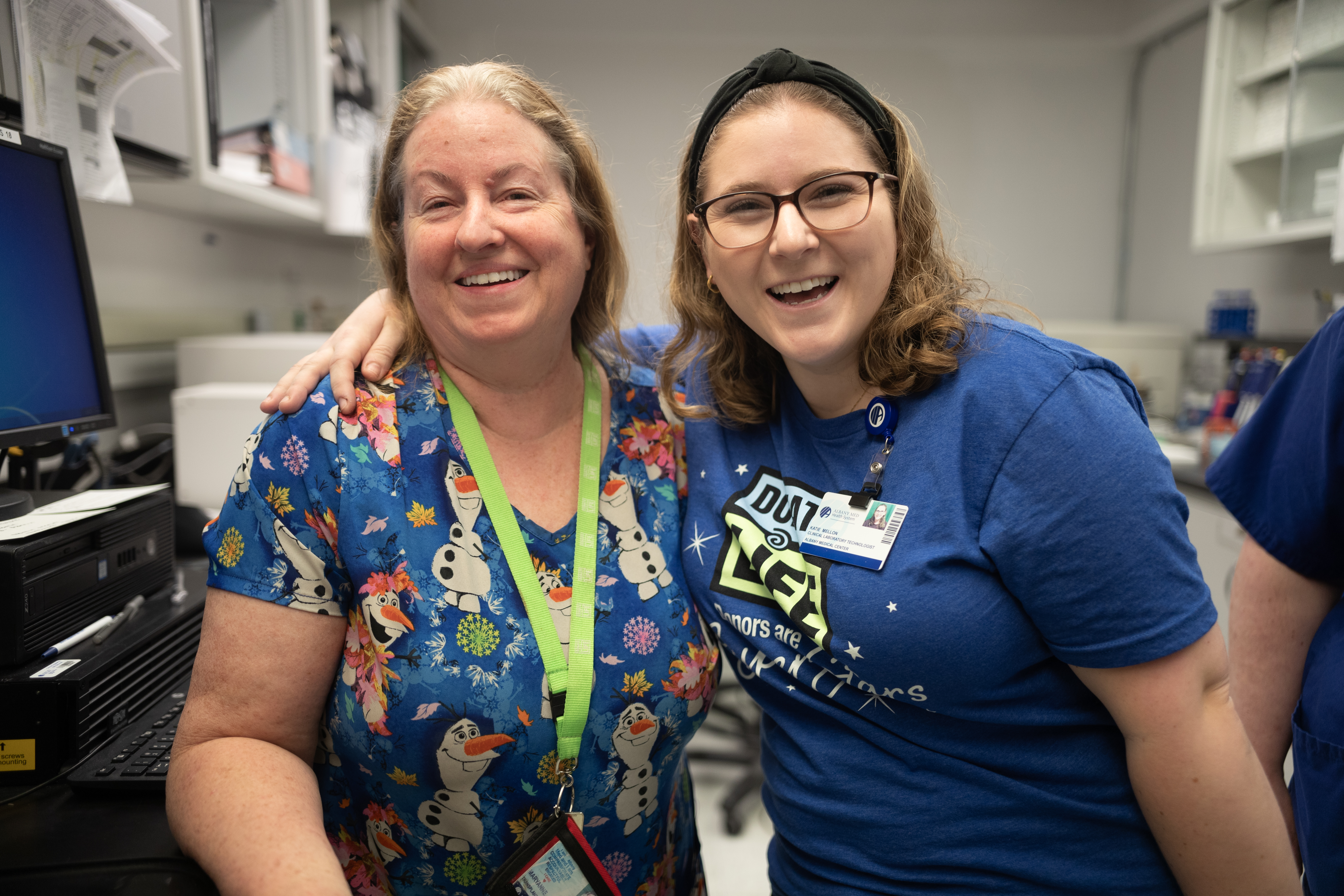
None of the 100-plus new patients who come to Albany Medical Center for a kidney transplant this year is likely to meet Katie Mellon ’19.
Yet her expertise is a critical component of the care they receive. Mellon and another ACPHS alum, Maryanne Mackey ’84, are among the nine-person team at Albany Med’s Transplantation Immunology Laboratory who conduct a battery of tests on donors’ and patients’ blood sera to ensure that when a kidney is transplanted, the patient does not reject it.
In other words, their work is essential to ensuring that a patient who receives a new kidney survives, thrives – and gets the chance to live a longer life.
“You’re literally a part of putting an organ into someone,” said Mellon, who earned bachelor’s and master’s degrees in clinical laboratory sciences from ACPHS and has worked in the transplant unit lab for four years.
Mellon doesn’t mind that she is unnoticed by patients. Her preferred place is behind the scenes, she said. Nonetheless, she feels a connection to each one as she puts their blood through tests that will determine their fate. That includes patients who sit in the queue for a kidney for a long time, waiting for a match with the right donor.
“Just hearing that they got the kidney is recognition – you played a part in that,” Mellon said of her role.
Mellon decided to pursue clinical laboratory sciences because she was interested in working at the lab bench while having an impact on patient care. She had come to ACPHS with designs on some field of biological sciences, but pivoted to CLS because she wanted neither to be a researcher nor a medical provider.
“I’m on a bench, like a researcher. But the purpose of being on that bench is much more, to me, than the result of an experiment that will lead to learning more,” she said. “I wanted to make a more immediate difference in people’s lives, without actually interacting with them.”
Whether or not transplant patients know it, Mellon’s work is essential to their well-being. In addition to the patients, she runs tests on living organ donors and kidneys from deceased donors. That last group is the highest priority, as kidneys, often airlifted to Albany Med following a donor’s death, remain viable for transplant for only 16 to 24 hours. It takes lab scientists about five hours to conduct the tests that determine whether the kidney is suitable for transplantation in a patient at the top of the recipient list. Meanwhile, an operating room must be prepped, and the patient needs to travel to the facility for surgery.
It's a kind of logistical choreography with multiple fast-moving steps, and lab scientists are critical to making it work.
“In our lab, there’s really a lot of interpretation,” said Dr. Amy Hahn, who directs Albany Med’s Transplantation Immunology Laboratory. “The scientists here interact directly with the surgeons and organ procurement people. I rely on them to make decisions in the middle of the night.”
Yes, being a laboratory scientist in the transplant unit means Mellon is on call some nights and weekends.
Choosing to work in transplant is often a life-long career choice, Dr. Hahn said. Indeed, Mackey has spent virtually her entire career there, after getting her degree in medical technology from ACPHS in 1984. Like Mellon, she likes the indirect but meaningful connection to patients, the sense that she is helping to improve their lives and the collaboration with the medical team.
“We have more interactions with the patients and the doctors than other laboratories, except for maybe the blood bank,” Mackey said. “Hopefully, we find out that patients’ lives were saved because of what we did.”
Mellon cannot imagine being anywhere else at this point. But not everyone who wants to work in a lab would be suited to a transplant unit, she said. You have to be flexible, for one, and have the confidence in your skills to make recommendations with weighty impact.
Her advice to others considering such a career? “Trust your gut,” she said. And for those who choose a transplant lab? “Understand that what you’re doing makes such a difference in somebody else’s life. It’s rewarding.”
Below: ACPHS alumni Mackey and Mellon in the Albany Med Transplant Immunology Laboratory


